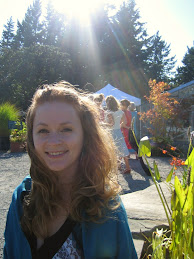 Of all sports, swimming probably places the least strain on the body - whatever speed you swim, the water will support you, preventing muscle strain or joint injury and allowing you to relax into the movement. Enjoy the sense of weightlessness as you float and the sense of power as you cleave the water.
Of all sports, swimming probably places the least strain on the body - whatever speed you swim, the water will support you, preventing muscle strain or joint injury and allowing you to relax into the movement. Enjoy the sense of weightlessness as you float and the sense of power as you cleave the water.If you're looking for a good workout, try out one of the waterfit classes that are offered through local rec centres... this is a wonderful workout for your core as well as all your other body parts! I also have found that waterfit can be a very social experience, where you can meet people and strike up new friendships.





